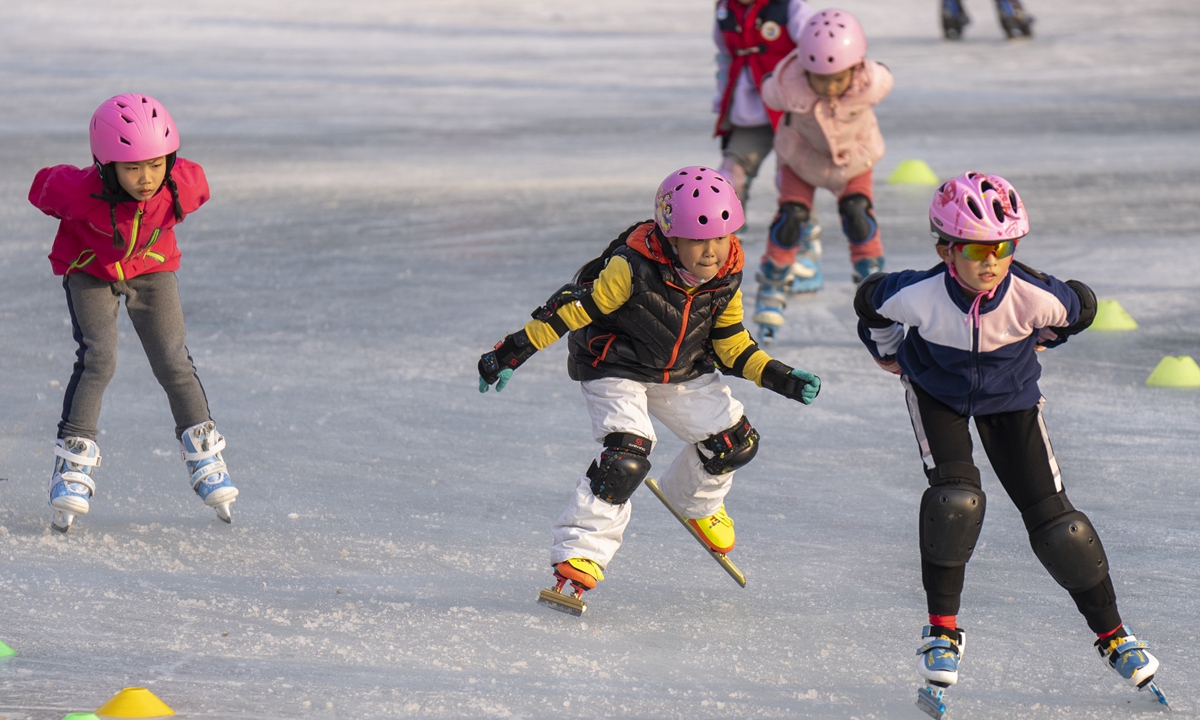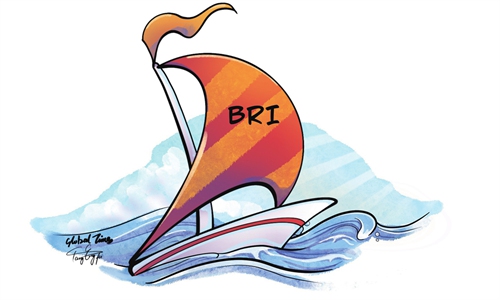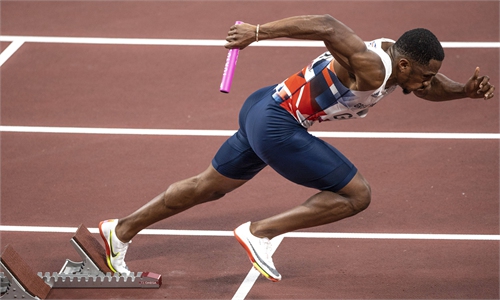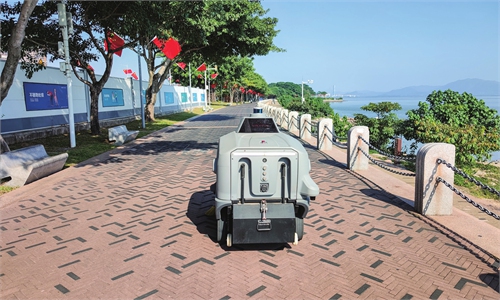BRI’s focus on green infrastructure attracts growing interest in Europe: Norwegian scholar

As world athletes compete at the Beijing Winter Olympic Games, children also participate in winter sports at an outdoor skating rink in Haidian district on February 9, 2022. Photo: VCG
Editor's Note:
In 2013, China put forward the "Belt and Road Initiative" (BRI), aimed at building a new platform for international cooperation and creating new momentum for shared development. And the investment under the BRI is constantly interconnecting with Europe, including North Europe.
The Global Times (GT) recently spoke with Henning Kristoffersen (Kristoffersen), a special advisor for Position Green, a Nordic-based company offering sustainability and enterprise strategy group advisory, sharing his views on the development of BRI in North Europe and economic cooperation between China and Norway in recent years.
This is the fifth in a series scoping the views of foreign experts on the remarkable contribution made by the BRI to global development over the past 10 years.
Q: How's the development of BRI in North Europe in the past decade, and in Norway in particular? And how have northern European companies participated in China's economic construction over the past decade?
Kristoffersen: Several European countries, including Norway, were among the very first to support the establishment of the Asian Infrastructure and Investment Bank (AIIB). This shows our recognition to the fact that increased investment in infrastructure in Asia and globally is in dire need. BRI's current focus on green infrastructure projects is very important for attracting greater interest in Europe.
For the last 20 years European companies have had a wide and deep presence in the Chinese market and industrial development and contributed with knowledge transfer in a wide range of sectors. The crisis of today - be it climate, health, or poverty, they are all global and urgent. It would therefore be a grave mistake to think that China and Europe can do without each other.
Q: How's the economic and trade cooperation between China and Europe, especially Norway in the past years? In what areas could China and Norway strengthen cooperation?
Kristoffersen: China's rapid technological development during recent years is seen as both an opportunity and a challenge for European industry. When China is leading the development within several of the core technologies of our time, such as for telecommunications and artificial intelligence, this is seen by many as a "threat" - given the geopolitical tensions we are experiencing. Consequently, there is some pressure in pockets of Europe to engage in less economic activities with China.
On the other hand, everyone knows that the fundamental global challenges we are facing today requires cooperation. Within green technology, be it wind, solar, or development of batteries, China is leading when it comes to production, implementation, and innovation. It is vital that European and Chinese industry work efficiently together within green technology. Here Norwegian industry can offer significant contributions, for instance within hydrogen technology and offshore wind.
Q: To what extent have Norwegian companies invested in the Chinese ice and snow market?
Kristoffersen: Norwegian brands of winter sport products were already going for the Chinese market long before this winter. The 2022 Winter Olympics in Beijing was a real boost for this industry. As China's winter-related economy continues to grow, this certainly is promising for Norwegian winter sport brands. Hopefully we will soon see Chinese tourists in Norway again during winter. This is also an important factor for promoting Norwegian brands in the Chinese winter sports market.
Q: How serious is the oil and gas crisis in Europe, including Norway? How has it affected the European economy?
Kristoffersen: The oil and gas crisis is very serious for Europe as it threatens industrial production and employment. As recession looms, high energy prices are felt by many going into the winter season. The smart way to go is of course to speed up production of renewable energy, but this is not a quick fix. Gas reserves in Europe are currently on a high level, but a long and cold winter could still prove to be a challenge for many in Europe.
For Norway, being a supplier of oil and gas, the situation is different. In Norway the state is profiting big time from this crisis, however, the Norwegian industry and population are facing severe challenges due to the increased price of electricity. This situation has instigated a big debate regarding the scale of Norwegian oil and gas exports to the rest of Europe, as well as the size of state subsidies to industry and population.



